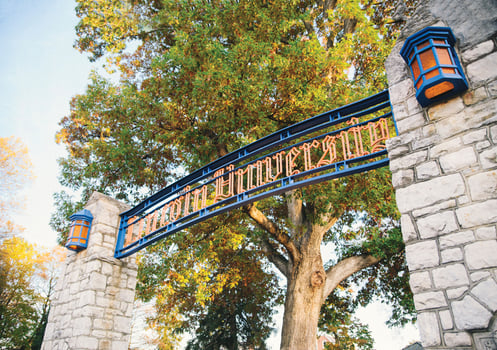Founded in 1854, The Lincoln University is the nation's oldest degree-granting institutions for persons of African descent. Lincoln is committed to maintaining a nurturing and stimulating environment for learning, teaching, research, creative expression and public service for a diverse student body, faculty and workforce.
Since its inception, Lincoln has attracted an interracial and international enrollment from the surrounding community, region and around the world. The university admitted women students in 1952, and formally associated with the Commonwealth of Pennsylvania in 1972 as a state-related, coeducational university that now enrolls 2,000 students. Over its rich 160-year history, Lincoln’s graduates read as a veritable who’s who of African-American “firsts”—luminaries who have become pioneers in their professions. Among them: Thurgood Marshall, first African-American U.S. Supreme Court Justice; Nnamdi Azikiwe, Nigeria’s first president; Kwame Nkrumah, Ghana’s first president; Lillian Fishburne, the U.S. Navy’s first female rear admiral; Rev. James Robinson, founder of Crossroads Africa (the model for the Peace Corps); Roscoe Lee Browne, renowned actor and author; Langston Hughes, world-acclaimed poet; Jacqueline Allen, judge for Philadelphia’s Court of Common Pleas; and Dr. Sibusio Nkomo, chairperson, National Policy Institute of South Africa.
The Lincoln University prides itself on being a citizen of a global marketplace, with a long track record of reaching out to the world and inviting people of all races, creeds, national origins, and ethnic groups to become a part of the institution, where they find a finance-based core curriculum couched in a strong liberal arts education.


Beyond pure academics, however, Lincoln cultivates “whole individuals.” When graduates doff their mortarboards, they walk away understanding that they have an obligation and responsibility to give back, pay forward and bring someone else along.
Attracting and retaining the best and brightest, regardless of students’ financial circumstances, requires robust funding and fastidious fiscal management. On the former front, the university has recently embarked on a $10 million “Students First” scholarship endowment campaign to raise funds for both merit- and need-based scholarships.
For the latter, close scrutiny of expenses and other fiscal prudence efforts have been implemented to ensure that the university’s vaunted inclusiveness does not compromise its long-term solvency. Toward that end, an annual convocation informs both faculty and students of the financial status of the institution—instilling a healthy blend of transparency and accountability.
With a myriad of firsts to its credit and a tradition of producing world leaders, the university engages in programs that increase knowledge and global understanding. Its diverse student body and expert workforce foster a supportive environment for professional and personal growth and mutual respect. The result: a place where people come willingly to learn, teach, work and visit.
Right: the venerable, historic gate to The Lincoln University. Above: three of Lincoln’s more than 2,000 students engage in campus conversation.
